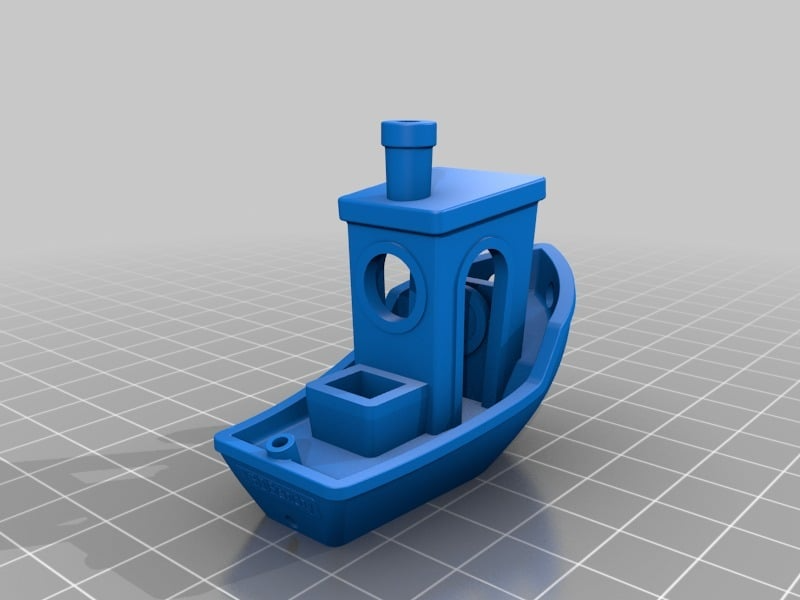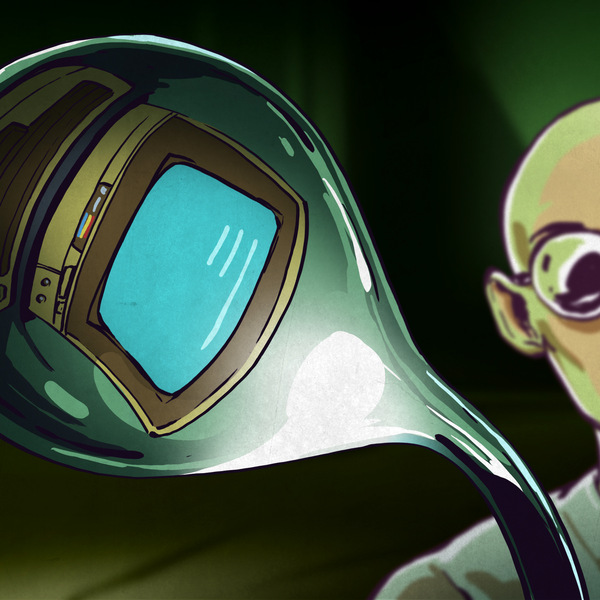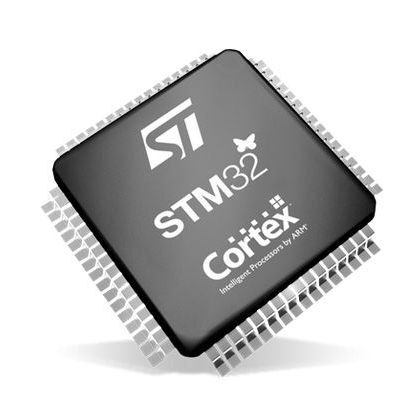Good news for everyone who cannot get enough from improbably shaped boats that get referred to as a bench: the current owner (NTI Group) of the copyright has announced that 3DBenchy has been released into the public domain. This comes not too long after Prusa’s Printables website had begun to purge all derived models to adhere to the ‘no derivatives’ license. According to NTI, the removal of these derived models was not requested by NTI, but by a third-party report, unbeknownst to NTI or the original creator of the model. Recognizing its importance to the community, 3DBenchy can now be downloaded & modified freely.
NTI worked together with the original creator [Daniel Norée] and former Creative Tools CEO [Paulo Kiefe] to transition 3DBenchy and the associated website to the public domain, with the latter two having control over the website and associated social media accounts. Hopefully this means that the purged models on Printables can be restored soon, even if some may prefer to print alternate (literal) benches.
The unfortunate part is that much of this mess began courtesy of the original 3DBenchy license being ignored. If that point had been addressed many years ago instead of being swept under the rug by all parties involved, there would have been no need for any of this kerfuffle.
















I’m actually disappointed if they fully released it public domain.
I’d have preferred a more permissive license (than the prior one), while acknowledging the original purpose.
Regardless, better than it being under an extremely rigidly enforced license everyone hates.
Which license specifically?
Zack Freedman on YouTube had an extensive video about this but it was a creative commons license with no derivatives.
Genuinely curious. What license could possibly be more permissive than public domain?
I mean, with public domain there are no restrictions, so you can do anything with it, including (I believe) creating a derivative and license it under any license you want.
The issue is “public domain” isn’t a license. It’s verbal implicit permission, a statement that they will not enforce their rights while not actually licensing those rights to us.
They can make an announcement at any time revoking that implicit permission.
In the US an implicit contract still has legal weight, you can use it to show a court they shouldn’t award damages between now and the date of them announcing a change, but you’re still on the hook for damages after any change.
Even then without an actual contract/license, there is no argument to be made that you ever had the right to distribute or make derivatives. You have to argue you were not aware you broke the law and they are acting in bad faith.
Also of note, I’m not saying nti will do this, just that they can, including anyone who might obtain the copyright from them in the future.
It’s taking a risk that frankly doesn’t make sense to take when there are other models to use that do explicitly allow you to use them with zero risk.
Y’all need to look into things before you post. 3D Benchy is licensed into the Public Domain, under CC0.
https://www.3dbenchy.com/license/
Sorry, I didn’t say “public domain” was a license… Also, this is not a verbal implicit permission (but where I live verbal agreements legally binding), but written permission.
You seem to be claiming that somebody could put something in the public domain, then change their mind, withdraw it, and start suing everybody using the something. I really don’t see a way of that working. You say you can use X for free, then you want money for using X? Although, if you have a good plan, I’ve got some idea$$$ we can use…!
Why? Public domain is best license.
Public Domain isn’t a license. You actually can’t deliberately put anything into the real public domain, because copyright ownership is permanent and irrevocable, until 75 years after you die (or whatever).
Best you can do is provide an actual license that explicitly provides access without ownership, because the claim that something is put into the public domain has no legal weight, and the owner could reassert their ownership and retroactively revoke that claim at any time. A real license doesn’t disclaim ownership, but binds the owner to allow usage of the thing.
Maybe in Germany, but not in the US. You can just declare what you made is public domain and it is. I do that with all my software, and throw in the 0-clause BSD license for countries where PD isn’t recognized.
I’m more of a GPL guy because it prevents corporations from using your code in their stuff. (And if they do steal your work, then you can report them to police.)
Nice one, Sven. I wish it were true but I am sorry to disappoint you. GPL violation has been happening for YEARS and very little enforcement against the perpetrators is ever done.
Some companies put a statement on their webpage that their software contains GPL’d code and think that’s enough. They are making money on the backs of other hardworking individuals some of which are volunteers.
If anything, GPL benefits big corpos more, because your license is only as good as you being willing to enforce it, which means taking them to court and paying for that out of pocket. These legal battles often take months, if not years. By time they’re settled, if they lose, they’d have made their profit and being forced to release the code won’t matter to them, and despite winning, you could be in a ton of debt.
Additionally, smaller upstarts who don’t have the capital to fight such legal battles will be at a disadvantage, as any algorithms they develop for a product that used GPL software will have to be divulged, and larger companies could come along and use them, possibly improving upon their work, and out-competing them.
In conclusion, permissive/public domain licenses are objectively better if you dislike big corporations :)
Not for a benchmark. Benchmarks must remain the same so that what they are measuring remains consistent. If you allow people to modify it they can rig the benchmarks.
You think there won’t also be people out there preserving the original and ensuring it’s used?
Do you really think a license is going to stop people from making modifications?
They should have released it under CC0.
There’s no “should have”, they did release it under CC0.
So HaD (Maya Posch) is “responsible” for continuing the “kerfuffle” in the comments section because they didn’t include the CCO part in the article…
CC0 is a public domain license.
https://creativecommons.org/publicdomain/zero/1.0/
“The person who associated a work with this deed has dedicated the work to the public domain by waiving all of his or her rights…”
As popular and remixed as it may be, it’s just a model. I can’t understand this amount of drama and time invested in the topic by now… Maybe it’s just me, but I’m getting numb from so much ado for nothing, all the time.
So much cool stuff to build and talk about… I’m done with benchy, Bambu et all.
this is a nice gesture from the owners.
the one time i printed a benchy, i discovered a surprising practical problem specifically with the ubitquity of it. my printer came with benchy gcode pre-installed in its microsd card, and a small quantity of some sort of pla filament. that was such a ridiculous level of convenience compared to the reprap of my previous printer that i went ahead and printed it on a lark. first off, the slicer settings that the vendor used are awful, so the benchy looks much worse than the printer is capable of. but secondly, they didn’t include the slicer settings! it wasn’t like Slic3r that embeds its config settings as comments in the gcode file.
so it was absolutely useless! it didn’t provide a starting point for fine tuning my slicer settings, which i think is the real purpose of it.
just a funny mis-step by a vendor. it didn’t do me any good. the best laid plans.
Licences always matter eventually. See also: winamp being “open sourced”…..and then discovered to contain a lot of other people’s code, including GPL stuff.
“much of this mess began courtesy of the original 3DBenchy license being ignored. ”
Oh spare us. This was started by the originators using a stupid license to begin with that is never enforced at the scale they were at. Its enforced by large scale companies who have the money to pay for “3rd party reports” to send DMCA notices out to dozens, hundreds, or even thousands of sites. NTI trying to use the anonymity of a “3rd party” when they would be the ones paying for that report to exist and spread in the 1st place.
The whole idea of these restrictive licenses being mixed with publicly releasing designs to the international public is silly from the start. Either keep the design local to yourself or release it. Far too many resources being wasted on stupid squabbles like this.
I’m more interested/concerned who this third party Karen is that felt they had the right to police a license on something they had absolutely no rights to. Sounds like a copyright troll trying to scare up some (mostly) free money.
It could also have been a law firm that Prusa hired to do an IP review that decided that the risk wasn’t worth them taking. On very close read, Prusa never said that anyone asked them to take the Benchy derivatives down. Just that they after being informed of the license violation, they are taking them down.
Or maybe it was a concern troll.
But it probably wasn’t a copyright troll, because the company that could have done the trolling says it wasn’t them, and Prusa confirms.
I was really happy when all the Benchy models were pulled from Printables. I never understood why so many people uploaded the same bloody model.
Look at any printables-type website or indeed anything where people post or sell their stuff, for every genuinely creative poster there are 100 people posting copies, lazy derivatives, and now AI-generated dross.
Look at etsy and the huge volume of “I’ve got clipart and a cheap laser cutter” stuff, or worse “I’ve got google image search and no concept of copyright” stuff people are selling.